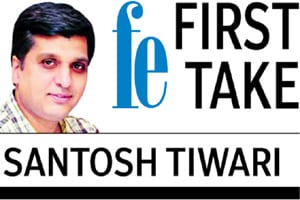Prime minister Narendra Modi’s three-day US visit beginning today is most probably the last with President Barack Obama at the helm of affairs.
His US visits have no doubt increased the interest of the US companies in India, and the CEOs of top tech companies coming here on a regular basis now and unveiling their investment plans for the country are a clear indication of that.
But, this doesn’t mean that company-level engagements, which may be more because of India being a huge market, also signal the US putting its might behind India’s business interests.
The US is a hard bargainer. It will not budge even an inch when it comes to protecting its business interests. Prime minister Narendra Modi has to find a way out to find areas of mutual interests and remember that rhetoric will not help here and the government stance on retrospective taxation and in the areas of tech adoption like GM seeds needs to change.
The resolution of transfer pricing disputes with the US IT and ITES companies on additions to their income by the Indian tax authorities has set an example of how authorities from both the sides can sit together and enable a conducive framework for doing business in India.
This needs to transcend to other areas also and though the government has succeeded in cleaning up the tax mess to a large extent, it needs to find a way out to completely get rid of the 2012 retrospective amendment and also the two top cases, Vodafone and Cairn, continuing under it.
Along with this, India also has to address the US concerns on its IPR regime.
The latest Special 301 Report of the USTR released in April said: “India also remains on the Priority Watch List this year for lack of sufficient measurable improvements to its IPR framework despite more robust engagement and positive steps forward on IPR protection and enforcement undertaken by the Government of India. USTR retains the option of conducting an OCR of India should developments—either positive or negative—weigh in favour of a review in advance of the annual cycle.”
Though any significant movement in the Indo-US business domain before the US presidential elections later this year are over is highly unlikely, PM Modi’s current visit will certainly be helpful in doing the ground work for the new administration for its engagements with India.
The USIBC president Mukesh Aghi has outlined the agenda in a blog addressed to the US Secretary of State, John Kerry, Commerce Secretary Penny Pritzker, and Trade Representative Michael Froman, that could be a good platform for conducting the talks.
Interestingly, the first item mentioned in the agenda is to re-launch the Bilateral Investment Treaty (BIT) negotiations. This is a tough ground for India as it has made it clear that tax disputes will not be part of its BITs, but considering the experience of foreign companies in handling of tax issues in India, there has to be a window in the BITs to address this concern.
Among others, the USIBC has also asked for the US support of India’s membership into APEC and its ‘eventual membership into the Trans-Pacific Partnership (TPP) and/or a bilateral Free Trade Agreement (FTA)’.
PM Modi, obviously, will have to take this forward in his meetings with the US authorities besides raising the Visa and other issues of Indian IT companies.
